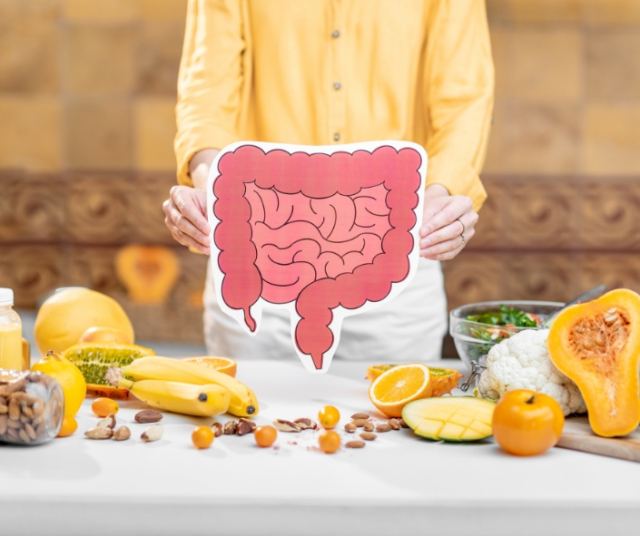The digestive system is a marvel of human biology, an intricate network of organs designed to break down food, absorb nutrients, and eliminate waste. However, this system does not always work smoothly. Digestive problems are a common occurrence in the lives of many people, ranging from occasional heartburn to serious chronic diseases such as inflammatory bowel disease. In this article, we will explore in detail the different digestive problems, from the most common to the least known, analyzing their causes, symptoms and treatment options.
The digestive system:
The digestive system is a complex network of organs that begins in the mouth and ends in the anus. It includes the mouth, esophagus, stomach, small intestine, large intestine, rectum, and anus, each with specific functions in the process of digestion and absorption of nutrients. When this system is working properly, food is broken down into nutrients that the body can absorb and use for energy and maintenance of health. However, various factors can interfere with this process and cause digestive problems.
Common digestive problems:
Common digestive problems include heartburn, indigestion, constipation, diarrhea, gas, and irritable bowel syndrome (IBS). These disorders can be caused by a variety of factors, including diet, stress, hormonal changes, medications, and underlying medical conditions. Although they are usually not serious, they can cause significant discomfort and affect a person's quality of life.
Chronic digestive diseases:
In addition to common digestive problems, there are more serious chronic digestive diseases that require specialized medical care and long-term treatment. Some examples include gastroesophageal reflux disease (GERD), inflammatory bowel disease (IBD), such as Crohn's disease and ulcerative colitis, celiac disease, pancreatitis, liver disease, and digestive cancer. These conditions can be debilitating and significantly impact a person's health and well-being.
Causes of digestive problems:
Digestive problems can be caused by a variety of factors, including diet, lifestyle, genetic factors, and underlying medical conditions. A diet high in fats, processed foods, refined sugars, and spicy foods can increase the risk of digestive problems such as heartburn, indigestion, and constipation. Additionally, stress, lack of exercise, excessive alcohol consumption, and smoking can also contribute to digestive problems.
Symptoms of digestive problems:
Symptoms of digestive problems can vary depending on the disorder and the severity of the problem, but generally include abdominal pain, bloating, gas, nausea, vomiting, diarrhea, constipation, heartburn, indigestion, and loss of appetite. In more severe cases, symptoms may include rectal bleeding, unexplained weight loss, fatigue, fever, and changes in bowel habits.
Treatment of digestive problems:
Treatment for digestive problems varies depending on the specific disorder and the severity of the symptoms. Below are some of the common strategies and approaches used to address these issues:
Diet and lifestyle changes: In many cases, digestive problems can be controlled or alleviated through diet and lifestyle changes. This may include eliminating foods that trigger symptoms, such as fatty, spicy, or acidic foods, as well as incorporating more fiber into the diet to improve bowel regularity. Additionally, reducing alcohol consumption, avoiding smoking, and managing stress can help reduce symptoms of digestive problems such as heartburn, indigestion, and irritable bowel syndrome (IBS).
Over-the-counter medications: For mild digestive problems, such as occasional heartburn or constipation, over-the-counter medications can be effective in relieving symptoms. Antacids can help neutralize stomach acid and relieve heartburn, while laxatives can help soften stools and relieve constipation. It is important to follow the manufacturer's instructions and consult a doctor if symptoms persist or worsen.
Prescription medications: For more serious or chronic digestive problems, prescription medications may be needed to control symptoms and prevent complications. For example, proton pump inhibitors (PPIs) may be prescribed to treat gastroesophageal reflux disease (GERD) and reduce stomach acid production. Antispasmodic medications can help control muscle spasms in the intestine and relieve symptoms of irritable bowel syndrome (IBS). It is important to follow a doctor's recommendations and monitor for any side effects.
Complementary Therapies: Some people find relief from digestive problems through complementary therapies such as acupuncture, hypnosis, aromatherapy, and herbal medicine. While these therapies may not work for everyone, some people find them helpful in reducing stress, relieving anxiety, and improving digestive function.
Medical and surgical procedures: In severe cases of digestive diseases, such as inflammatory bowel disease (IBD) or pancreatitis, medical or surgical procedures may be necessary to treat the underlying problem and relieve symptoms. These procedures may include endoscopies, laparoscopic surgery, or open surgery, depending on the nature and severity of the disorder.
Prevention of digestive problems:
To prevent digestive problems, it is important to maintain a healthy lifestyle that includes a balanced diet rich in fiber, fruits, vegetables and whole grains, avoiding excessive alcohol and tobacco consumption, exercising regularly, managing stress and maintaining a healthy weight. . Additionally, it is essential to follow medical recommendations and undergo regular screening to detect and treat any digestive problems in early stages.
Digestive problems are a common concern that affects millions of people around the world. From mild problems like heartburn and indigestion to serious illnesses like inflammatory bowel disease and digestive cancer, these disorders can have a significant impact on a person's quality of life. It is important to understand the causes, symptoms, and treatment options of digestive problems in order to prevent and treat these disorders effectively.






